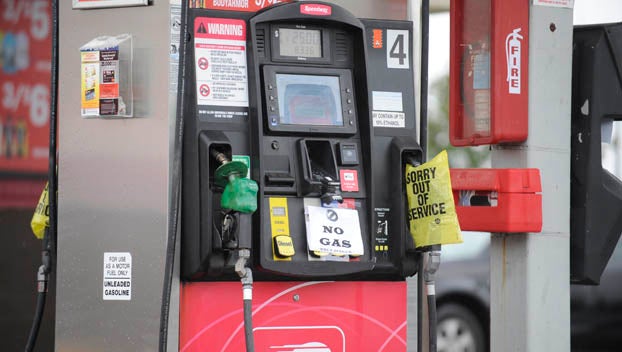Scramble on for new fuel routes after Colonial Pipeline hack
Published 3:00 pm Wednesday, May 12, 2021

- (Brandon Tester / Washington Daily News)
|
Getting your Trinity Audio player ready...
|
RALEIGH (AP) — State and federal officials are scrambling to find alternate routes to deliver gasoline in the Southeast U.S. after a hack of the nation’s largest fuel pipeline led to panic-buying that contributed to more than 1,000 gas stations running out of fuel.
There is no gasoline shortage, according to government officials and energy analysts, but if the pipeline shutdown continues past the weekend, it could create broader fuel disruptions.
The Colonial Pipeline, which delivers about 45% of the fuel consumed on the East Coast, was hit on Friday with a cyberattack by hackers who lock up computer systems and demand a ransom to release them. The attack raised concerns, once again, about the vulnerability of the nation’s critical infrastructure.
The pipeline runs from the Gulf Coast to the New York metropolitan region, but states in the Southeast are more reliant on the pipeline. Other parts of the country have more sources to tap. For example, a substantial amount of fuel is delivered to states in the Northeast by massive tankers.
“What you’re feeling is not a lack of supply or a supply issue. What we have is a transportation issue,” said Jeanette McGee, spokeswoman for the AAA auto club. “There is ample supply to fuel the United States for the summer, but what we’re having an issue with is getting it to those gas stations because the pipeline is down.”
In North Carolina, 28% of gas stations were out of fuel, according to Gasbuddy.com, a technology firm that tracks real-time fuel prices across the country. In Raleigh-Durham it was worse, with 72% of gas stations out of fuel.
Democratic Gov. Roy Cooper urged people Wednesday to only buy gas if their tank is low, and to report any instances of price gouging.
“We will continue our efforts to help make sure there is an adequate supply of fuel,” Cooper wrote on Twitter.
Cooper declared a state of emergency Monday, initiating fuel waivers that make it easier to transport fuel into the state.
Georgians were also getting squeezed, with 17.5% of stations there out of gas, according to Gasbuddy.com. In Virginia, 17% of stations were out, and in South Carolina, 16% had no fuel.
A large part of the pipeline resumed operations manually late Monday, and Colonial anticipates restarting most of its operations by the end of the week, U.S. Energy Secretary Jennifer Granholm said Tuesday.
However, the disruption is taking place at the time of year when Americans begin to become more mobile, especially as the nation emerges from the pandemic.
The national average price for a gallon of gasoline ticked above $3 for the first time since 2016 Wednesday, according to the AAA.
Prices begin to rise around this time every year and the auto club said Wednesday that the average price hit $3.008 nationally.
“You go to some states, and you’re going to see much higher increases, especially in the South, because that’s where you’re seeing the largest impact in terms of strain of gasoline, or strain of people,” McGee said.
The AAA expects more than 37 million people to travel at least 50 miles (80 kilometers) from home during the Memorial Day weekend, up 60% from last year, which was the lowest since AAA began keeping records in 2000.
Multiple U.S. agencies are coordinating efforts to avert any potential shortage, should they arise.
The White House said Wednesday that the Department of Transportation is now allowing Alabama, Georgia, Kentucky, Louisiana, Maryland, Mississippi, New Jersey, North Carolina, Tennessee and Virginia to use interstate highways to transport overweight loads of gasoline and other fuels under existing disaster declarations.
The department’s Maritime Administration completed a review of potential actions available under the Jones Act, a U.S. maritime law that requires shipments between U.S. ports, including fuel, to be moved by American-flagged ships.
The Department of Homeland Security is prepared to review any temporary Jones Act waiver requests from companies if there is not sufficient capacity to get to regions suffering fuel shortages, said White House press secretary Jen Psaki on Wednesday.





